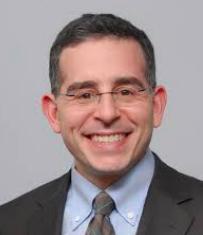Dr. Andrew Kolodny, one of the world's premier experts on addiction and drugs was kind enough to sit down with me to discuss some very tough questions regarding the ongoing opioid crisis in the US. We all owe Dr. Kolodny much gratitude for sharing his wisdom and insight. It is quite revealing.
JB: Good morning, Dr. Kolodny, and thank you so much for finding time in your very busy schedule to speak with me. I'm terribly sorry for being late but some guy pushed me in front of a subway train - again - and I had to stop off at the ER so I could get a Tylenol pill for my crushed femur. I begged for two pills but they called me a junkie and threw me out into the street. Landed on the same leg, which really sucked. Too bad I couldn't get that second pill.
AK: You have to be careful with that stuff. Too much Tylenol can give you lung cancer. Or, is it liver damage? Can't remember. I suppose that if it's absolutely necessary you could add some acetaminophen to the Tylenol. They work synergistically.
JB: But Andrew, Tylenol, and acetaminophen are identical.
AK: This cannot be true. Look here, I have photos of both. One has a red shiny coating but the other is white.

JB: Of course. People make that mistake all the time. But, the active ingredients in the two pills are the same. The company that made the red ones just added the red shell, perhaps to make the pill easier to swallow.
AK: Gee. So *that's* why they act synergistically. I had no idea.
JB: Andrew, that's not really possible. It takes two different drugs for synergy to be possible. Basic pharmacological principles.
AK: Pharma... what? I don't know what that means.
JB: It's OK. No one would expect a psychiatrist to know these things. Pharmacology is the study of the effect of drugs on the body.
AK: Thank you! That is *so* informative. It's really hard to keep up with all these new technical terms that keep popping up.
JB: But the term "pharmacology" was coined in the 19th century.
AK: See what I mean!
JB: I apologize in advance because this may be a very sensitive topic, but some people contend that your educational background does not make you qualified to have input into American drug policy. How do you respond to this?
AK: Utter nonsense! I finished in the top 95% of my graduating class at Queens College. My career options were unlimited. To this day I remember exactly what my bocce coach told me at graduation: "It would be a shame if you went into any other field." I'll never forget the tears in his eyes when I told him that I'd be going to... what's that place called?
JB: Do you mean medical school?
AK: Yeah, that's it.
JB: I don't need to tell you that you are a very polarizing figure in drug policy today. Some contend that you have stepped up at the perfect time to save America from the ravages of opioid addiction while others criticize your policies as wrong-headed and counterproductive. Putting aside these points of view for a moment, I think it is fair to say that your name and "opioid expert" are almost synonymous. It is nothing short of astonishing that a bocce major from Queens College has become the go-to person on all matters opioid. How did you begin this remarkable journey?
AK: I read an article in TV Guide. It changed my life.
JB: You already have accomplished more in a decade than most of us will ever do in our entire lives. Now that the opioid crisis is over what's next on the agenda?
AK: That's a timely question. As we speak, my colleague Jane Ballantyne, who knows almost as much about drugs as I do, and I have begun studying what we believe will trigger the next addiction crisis in the country - Flintstones Vitamins. Another product of big pharma, of course.
JB: How's that going so far?
AK: We're off to a bit of a rough start. Jane and I both agree that Fred and Wilma are safe enough, provided that they are classified as Schedule II drugs by the DEA. But Jane maintains that Barney, although he should be monitored closely, is safe and effective. To me, Barney is simply a heroin pill. There is no difference. The jury is still out on Dino.
JB: Andrew, I can't thank you enough for allowing me to conduct this fascinating and revealing interview, especially since you undoubtedly headed for the nearest TV camera. I have learned so much and will share your wisdom with all ACSH readers and the pain patients who follow me.
AK: No problem. I sure hope your arm feels better.
JB: Uh, the femur is a bone in the leg.
AK: Whatever.
(HAPPY APRIL FOOL'S DAY!)




